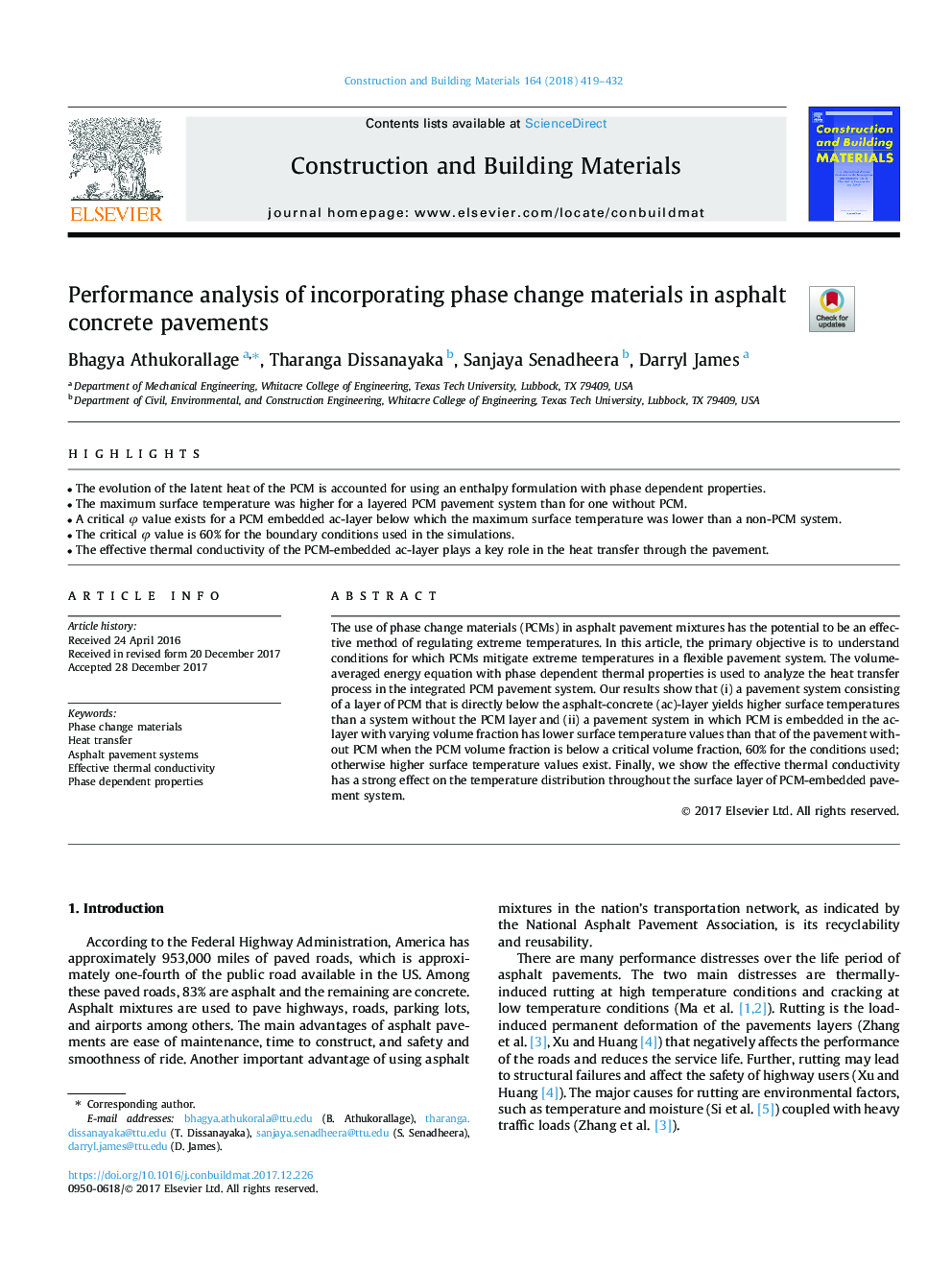| Article ID | Journal | Published Year | Pages | File Type |
|---|---|---|---|---|
| 6716022 | Construction and Building Materials | 2018 | 14 Pages |
Abstract
The use of phase change materials (PCMs) in asphalt pavement mixtures has the potential to be an effective method of regulating extreme temperatures. In this article, the primary objective is to understand conditions for which PCMs mitigate extreme temperatures in a flexible pavement system. The volume-averaged energy equation with phase dependent thermal properties is used to analyze the heat transfer process in the integrated PCM pavement system. Our results show that (i) a pavement system consisting of a layer of PCM that is directly below the asphalt-concrete (ac)-layer yields higher surface temperatures than a system without the PCM layer and (ii) a pavement system in which PCM is embedded in the ac-layer with varying volume fraction has lower surface temperature values than that of the pavement without PCM when the PCM volume fraction is below a critical volume fraction, 60% for the conditions used; otherwise higher surface temperature values exist. Finally, we show the effective thermal conductivity has a strong effect on the temperature distribution throughout the surface layer of PCM-embedded pavement system.
Related Topics
Physical Sciences and Engineering
Engineering
Civil and Structural Engineering
Authors
Bhagya Athukorallage, Tharanga Dissanayaka, Sanjaya Senadheera, Darryl James,
